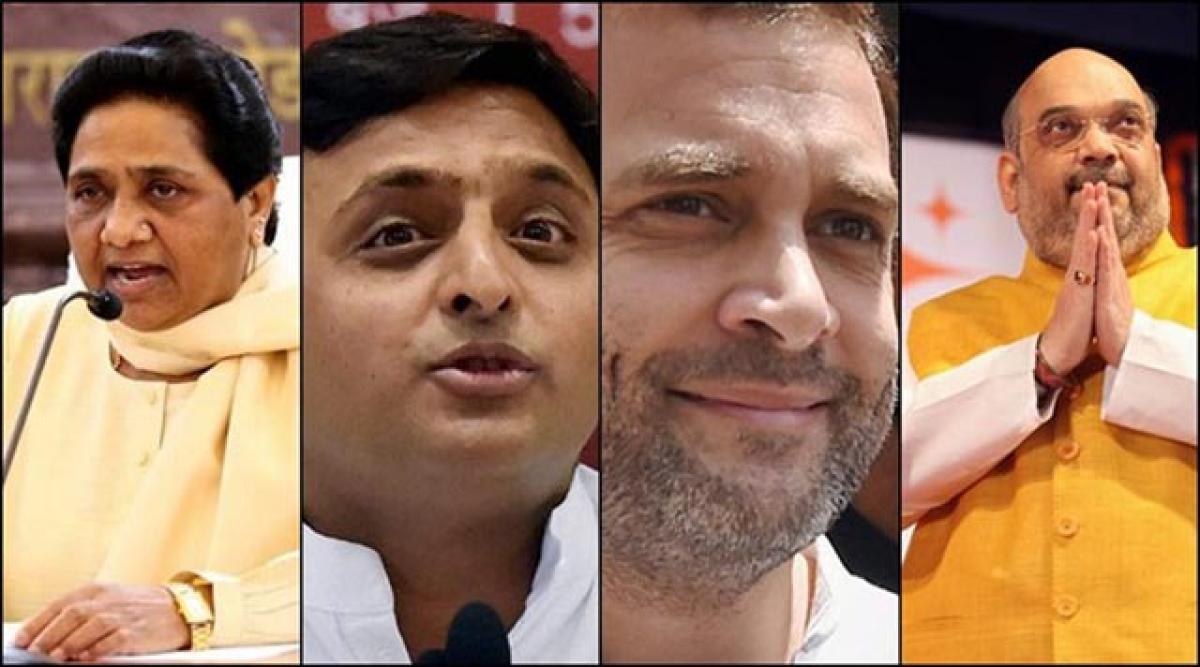Live
- HC quashes FIR against BJP MP over farmer suicide post
- Centre’s intent is to finish off small parties: DK Shivakumar
- Allu Arjun Released from Chanchalguda Jail, says he respects law
- Jesus is synonymous with sacrifice, forgiveness: Ponnam
- HC announces verdict in Kannada for the first time
- Uttam releases water from Nizam Sagar for Rabi crop
- TG to be Rs 84L cr economy in 10 years: Sridhar Babu
- First TGCHE, V-Cs meet deliberates on higher education roadmap for state
- 2 senior professors to join NALSAR
- Former Principal of SPW College passes away in US
Just In

The BJP-led central government has initiated the process of reviewing the definition of \"creamy layer\" as applicable to Other Backward Classes (OBCs), which have a sizable presence in poll-bound Uttar Pradesh.
New Delhi: The BJP-led central government has initiated the process of reviewing the definition of "creamy layer" as applicable to Other Backward Classes (OBCs), which have a sizable presence in poll-bound Uttar Pradesh. The move comes amid efforts by the BJP to build a broad caste matrix in the crucial state that is expected to go to the polls early next year.
Sources said that Union Social Justice Minister Thawar Chand Gehlot has instructed the officials to initiate the process of reviewing the definition of "creamy layer" -- a reference to the better off in castes that benefit from quotas. The issue was flagged last month by Republican Party of India leader and Union Minister of State for Social Justice Ramdas Athawale.
He is understood to have also raised it with PM Narendra Modi. Athawale is keen to raise the limit of annual income to Rs 10 lakh for the purpose of defining the "creamy layer", but Gehlot is learnt to be pitching for it to be raised up to Rs 8 lakh. Officials said that raising the ceiling of annual income of OBC families to get benefits of quota would result in a larger pool of candidates being eligible for government jobs and seats in educational institutions.
They also said that a large number of vacancies in government jobs meant for OBCs were vacant for want of candidates from among the communities. Leaders of the Samajwadi Party, which is seen to have sway over a large section of OBC votes in Uttar Pradesh, termed the move of the central government as "political" and said it was aimed at garnering votes.
"The move to raise the creamy layer limit for OBCs at this juncture is politically motivated. The BJP wants to garner political benefits in Uttar Pradesh by such tokenism and lip service. But they will not gain anything," Samajwadi Party leader Dharmendra Yadav told IANS. BJP leaders, however, said that concerns about income ceiling of OBCs have been expressed from time to time.
"This is not true. We are committed to welfare of the OBCs along with other communities in Uttar Pradesh and across India. But the ceiling cap of the OBCs is always a matter of concern and is raised from time to time," BJP MP Jagdambika Pal said. Last review of the "creamy layer" for the OBCs was done in 2013 and there is a provision to review it again in three years, a senior official said. "Creamy layer" refers to relatively wealthier members of the OBCs who are not eligible for government-sponsored educational programmes and jobs reserved for the community.
The income criterion was kept at Rs 1 lakh per annum in 1993, and revised to Rs 2.5 lakh in 2004. It was subsequently raised to Rs 4.5 lakh in 2008 and Rs 6 lakh in 2013. In October 2015, the National Commission for Backward Classes had recommended that annual family income of up to Rs 15 lakh should be considered as the minimum ceiling for OBC creamy layer criterion. RPI leaders said there was a growing demand to implement the recommendation of the National Commission for Backward Classes.
They said against 27% vacancies allocated, the community gets only about 15% benefits and this is largely "because of the economic criteria and creamy layer ceiling". As per the Mandal Commission report, OBCs constituted 52 per cent of India's population in 1980. The decision to implement the Commission report was taken in 1990 with OBC candidates given 27 per cent reservation in central government jobs.

© 2024 Hyderabad Media House Limited/The Hans India. All rights reserved. Powered by hocalwire.com







